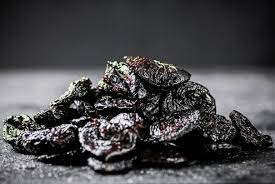The Journal of Nutrition and the Frontiers in Nutrition have officially published a study apiece to further validate the whole assortment of health benefits one can expect to receive from prunes, with a special focus on women health. According to certain reports, the findings in question here were realized after a 12-month randomized controlled trial, which had recruited over 183 postmenopausal women between the age of 55 and 75. Markedly enough, all these women were divided into three groups, and once that bit was done, they were asked to either consume 50 grams, or 100 grams of prunes daily, or none at all. Going by the results published in the Journal of Nutrition, women who ate 100 grams of prunes daily saw changes in fat distribution around the central region of the body, especially belly fat. This makes up a significant detail, especially when you consider that increase of belly fat is common in postmenopausal women, and if it breaches the excessive limit, it can be a risk factor for cardiovascular disease.
“While changes in body fat distribution and body mass index (BMI) are related generally to aging, a growing body of research shows that where the body holds its fat mass is strongly associated with menopause transition,” said Mary Jane De Souza, principal investigator, and a professor at Department of Kinesiology of Pennsylvania State University. “Increased belly fat matters when it comes to disease risk, and dietary patterns can help impact fat distribution. Findings from this research show a daily diet that includes prunes may help reduce that belly fat.”
Turning our attention towards the second study, published by Frontiers of Nutrition, this one basically fixated upon the differences in the gut bacteria of participants who experienced a positive change in their bone density. The stated contingent was compared here to those who saw no change after eating 50 to 100 grams of prunes daily over a 12-month period. Interestingly, those who had an increase in bone density after eating prunes were found to possess a higher abundance of “good” gut bacteria, which has long been associated with more efficiently breaking down nutrients and bioactive parts of prunes for the body’s use. Not just that, this group also saw a drop in inflammation throughout the body.
Beyond the development in question, some of the other studies that have already proven prunes’ health potential include a review study, where post-menopausal women who consumed 100 grams of prunes daily for one year retained better bone mineral density, compared to those in the control group over the next five years. Another study, from the year 2021, showed that postmenopausal women who ate 50 to 100 grams of prunes daily over a six-month period reduced their levels of total cholesterol, oxidative stress, and inflammatory markers, when pitted against a group that did not include prunes in their diet.
“Collectively, the studies conducted on prunes show that the body is a synergistic machine—it’s highly interconnected when it comes to health outcomes and risks for chronic diseases,” said Leslie Bonci, MPH, RDN, CSSD, LDN. “The key takeaway across all of these studies is that incorporating prunes daily into a healthy dietary pattern can be a simple and delicious way to help women reduce their risk of chronic diseases and age more healthfully.”




